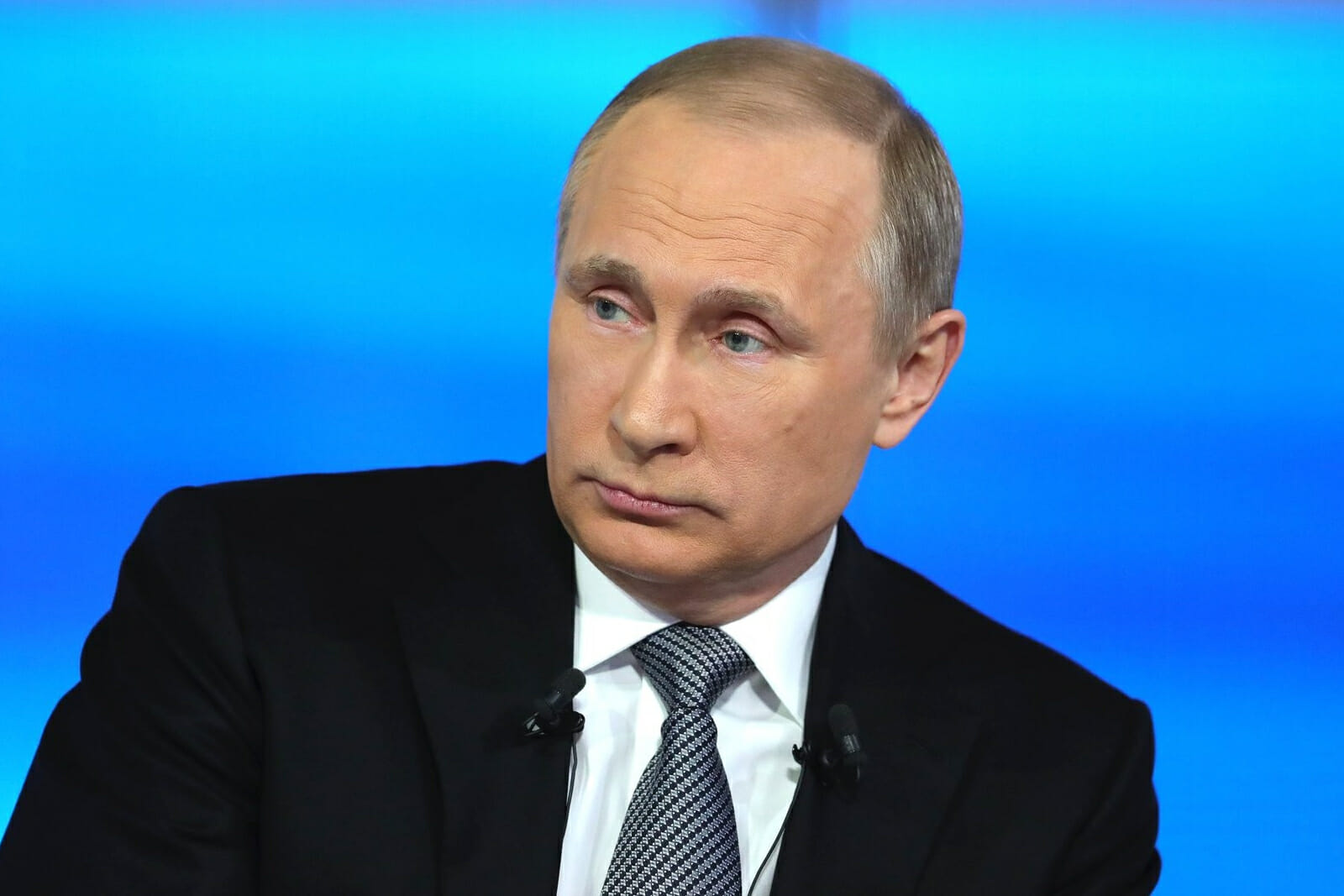
How to Rein in Putin
Last week, the Obama administration yet again imposed fresh sanctions on Russia. This time it targeted seventeen Russian institutions and seven individuals, two of whom are known to be from Russian President Vladimir Putin’s inner circle. Nonetheless, many Russia-watchers believe this latest round of punitive measures fails to match the escalating rhetoric of the White House. President Obama, however, signaled that there is room to maneuver should the Putin regime fall short of the universal expectation to leave Ukraine alone. Yet, the question remains: will this sanction regime effectively deter Putin?
It does not appear promising. Rather, it can backfire and therefore put U.S. President Barack Obama in a conundrum. Vladimir V. Putin, a former KGB agent who is obsessed with reclaiming Russia’s rightful niche in the post-Soviet unipolar world, has pursued a revisionist policy since he assumed power on New Year’s Eve, 2000. As a result, Putin has been able to solidify mother Russia’s image, in the global political landscape. Syria, for example, is the latest success of team Putin’s relentless effort in this regard. At the eleventh hour, Moscow’s chief diplomat, Sergei Lavrov, tabled the proposal to get rid of Syria’s chemical weapons in order to bypass an imminent American airstrike on Syrian military installations. Putin checkmated Obama’s war plan so deftly that its ripple effects soured the U.S. friendship with Saudi Arabia. The Obama administration is still trying to mend the troubled relationship with the Saudis.
Then there is Iran and Afghanistan. Either to secure a safe exit of U.S. forces from Afghanistan or to restrain Iranian nuclear ambition, Obama, unfortunately, needs to care about his Russian counterpart more than vice versa.
Despite President Obama’s intention to reboot the bilateral relationship, his Russian counterpart may have taken this as his weakness. The Putin regime therefore did not hesitate to go on the offensive to tackle the Ukraine crisis since he calculated that Washington would not meddle in Moscow’s backyard.
Washington did, however. The two-time U.S. sanctions now extend to as many as 30 government officials, oligarchs and some of their organizations although sanctions are yet to be levied against any Russian public institutions. President Obama emphasizes that his administration will not go after Putin personally suggesting that these restrictions are more symbolic than crippling.
This is how Obama hands Putin sufficient leverage to sustain Putin in power. Putin already is enjoying a healthy surge of popularity as a result of Moscow’s annexation of the Crimean Peninsula. Given the complex and intertwined past of Crimea, the majority of the ethnic Russians welcome it. Which is why, Putin can color the American sanction regime as a slap against Russia’s sovereignty and make the best use of this opportunity to reaffirm his leadership. That said any future tougher U.S. sanction may only bolster Putin’s hand. In that case, Putin can play the nationalism card more rigorously with increased American punishments.
Furthermore, if Washington in concert with the European leaders attempts to push Russia out of the global communities such as the G8, the outcome could be volatile. It may provide Putin with the mandate to act more like a rogue leader than a global stakeholder. If Moscow is exempted from shouldering global responsibilities, the Kremlin could turn into a bastion of subversion, if not communism. The Russian giant Gazprom has raised the gas price by 81% to choke Ukraine’s already languishing economy. While Moscow has suspended trade incentives to Baltic nations like Lithuania, Russia continues to flex its muscles against Estonia and Latvia. Moscow can do the same to other European countries, especially eastern European countries. Not to mention, Russia is a formidable foe for any country in Europe, if, God forbid, any conflagration breaks. Georgia knows it very well.
Taking this into account, strategists in Washington should craft policy which will not make Putin feel ostracized. Rather Russia, while remaining a part of the global elites, must be pressurized to clean up the mess that it has created. Sanctions are provocative and no permanent cure. Moreover, they can severely dent the nostalgic Vladimir’s ego. Therefore the Obama administration had better demonstrate prudence lest Putin considers it high time to bet on regaining Soviet pride. After all, this is as much a psychological war as a battle of power politics.
And Putin is already a winner; at least, that is what he would like to think because of swallowing the whole Crimean Peninsula. For the time being, Washington should not alter Putin’s delusion. Crimea is gone. This is hard to stomach; yet true. Those who still cling to the ideas that someday somehow Ukraine can retain its territory are wasting time.
The Crimean peninsula is important to Moscow not only strategically but also historically and emotionally for Putin. With that said, taking it back would be a hazardous business. Therefore, Washington can contrive a somewhat workable trade-off. Let Putin have Crimea and in turn, place NATO troops into Ukraine as a bulwark against Russian provocation. Hence, Putin will be made to believe that he is a Great Russian leader as he corrects, what he terms, a historical mistake in the Crimean Peninsula that dates backs to 1954. At the same time, Washington can take Ukraine under its security umbrella and begin the groundwork to formally include Ukraine in NATO.
In other words, let Putin remain a captive of his own delusional mind.

